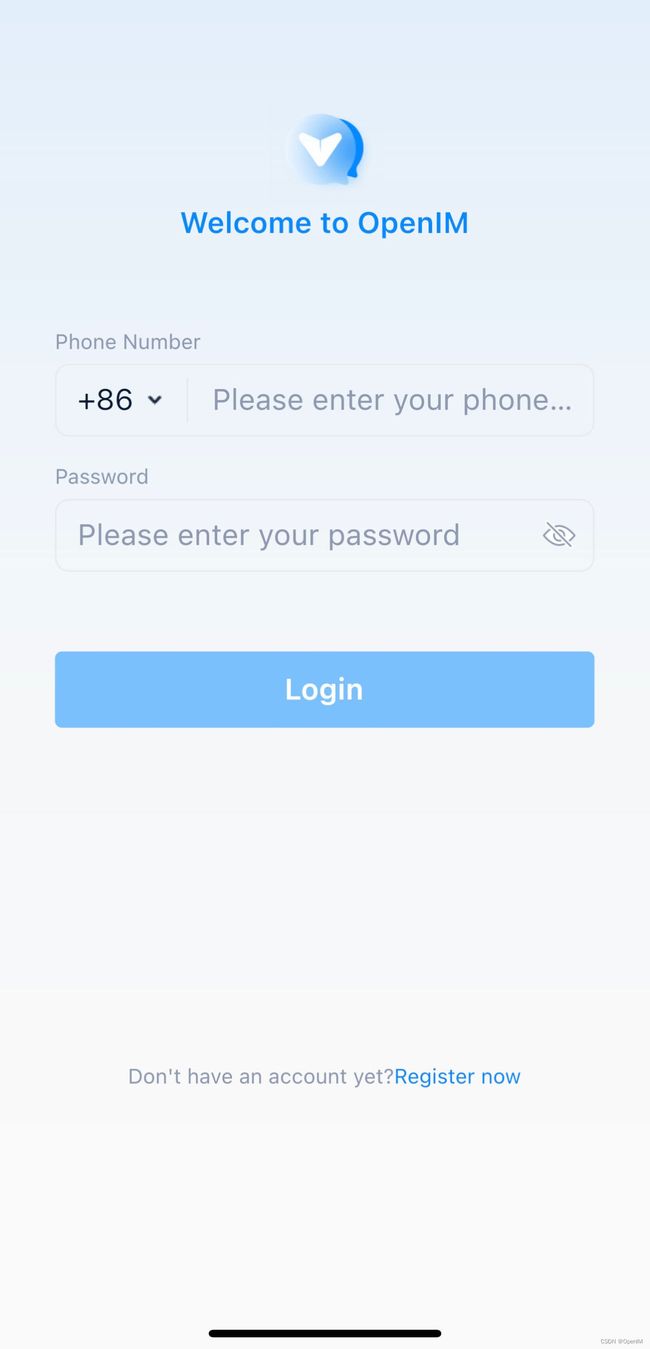Open Source Instant Messaging (IM) Project OpenIM Source Code
Deploying OpenIM involves multiple components and supports various methods, including source code, Docker, and Kubernetes. This requires ensuring compatibility between different deployment methods while effectively managing differences between versions. Indeed, these are complex issues involving in-depth technical details and precise system configurations. Our goal is to simplify the deployment process while maintaining the system’s flexibility and stability to suit different users’ needs. Currently, version 3.5 has simplified the deployment process, and this version will be maintained for a long time. We welcome everyone to use it.
- Environment and Component Requirements
Environmental Requirements
Note Detailed Description
OS Linux system
Hardware At least 4GB of RAM
Golang v1.19 or higher
Docker v24.0.5 or higher
Git v2.17.1 or higher
Storage Component Requirements
Storage Component Recommended Version
MongoDB v6.0.2 or higher
Redis v7.0.0 or higher
Zookeeper v3.8
Kafka v3.5.1
MySQL v5.7 or higher
MinIO Latest version - Deploying OpenIM Server (IM)
2.1 Setting OPENIM_IP
If the server has an external IP
export OPENIM_IP=“external IP”
If only providing internal network services
export OPENIM_IP=“internal IP”
2.2 ️ Deploying Components (mongodb/redis/zookeeper/kafka/MinIO, etc.)
git clone https://github.com/OpenIMSDK/open-im-server && cd open-im-server
It’s recommended to switch to release-v3.5 or later release branches
make init && docker compose up -d
2.3 ️ Compilation
make build
2.4 Starting/Stopping/Checking
Start
make start
Stop
make stop
Check
make check
3. Deploying App Server (Chat)
3.1 ️ Deploying Components (mysql)
Go back to the previous directory
cd …
Clone the repository, recommended to switch to release-v1.5 or later release branches
git clone https://github.com/OpenIMSDK/chat chat && cd chat
Deploy mysql
docker run -d --name mysql2 -p 13306:3306 -p 33306:33060 -v “$(pwd)/components/mysql/data:/var/lib/mysql” -v “/etc/localtime:/etc/localtime” -e MYSQL_ROOT_PASSWORD=“openIM123” --restart always mysql:5.7
3.2 ️ Compilation
make init
make build
3.3 Starting/Stopping/Checking
Start
make start
Stop
make stop
Check
make check
4. Quick Validation
Open Ports
IM Ports
TCP Port Description Action
TCP:10001 ws protocol, messaging port, for client SDK Allow port
TCP:10002 API port, like user, friend, group, message interfaces Allow port
TCP:10005 Required when choosing MinIO storage (OpenIM defaults to MinIO storage) Allow port
Chat Ports
TCP Port Description Action
TCP:10008 Business system, like registration, login, etc. Allow port
TCP:10009 Management backend, like statistics, account banning, etc. Allow port
PC Web and Management Backend Frontend Resource Ports
TCP Port Description Action
TCP:11001 PC Web frontend resources Allow port
TCP:11002 Management backend frontend resources Allow port
Grafana Port
TCP Port Description Action
TCP:13000 Grafana port Allow port
Verification
PC Web Verification
Note: Enter http://ip:11001 in your browser to access the PC Web. This IP should be the server’s OPENIM_IP to ensure browser accessibility. For first-time use, please register using your mobile phone number, with the default verification code being 666666.

Image: PC Web Interface Example
App Verification
Scan the following QR code or click here to download.
Download App
Image: App Download QR Code
Note: Double-click on OpenIM and change the IP to the server’s OPENIM_IP then restart the App. Please ensure related ports are open, and restart the App after making changes. For first-time use, please register first through your mobile phone number, with the default verification code being 666666.
Image: Server Address Modification - Step 1

Image: Server Address Modification - Step 2
- Modifying Configuration Items
5.1 ️ Modifying Shared Configuration Items
Configuration Item Files to be Modified Action
mongo/kafka/minio related .env, openim-server/config/config.yaml Restart components and IM
redis/zookeeper related .env, openim-server/config/config.yaml, chat/config/config.yaml Restart components, IM, and Chat
SECRET openim-server/config/config.yaml, chat/config/config.yaml Restart IM and Chat
5.2 Modifying Special Configuration Items
Special configuration items: API_OPENIM_PORT/MINIO_PORT/OPENIM_IP/GRAFANA_PORT
Modify the special configuration items in the .env file
Modify the configuration in openim-server/config/config.yaml according to the rules
Modify the configuration in chat/config/config.yaml according to the rules
Restart IM and Chat
5.3 ️ Modifying Other Configuration Items
For other configuration items in .env, chat/config/config.yaml, and openim-server/config/config.yaml, you can modify these items directly in the respective files.
5.4 Modifying Ports
Note that for any modification of IM-related ports, it’s necessary to synchronize the changes in open-im-server/scripts/install/environment.sh.
- Frequently Asked Questions
6.1 Viewing Logs
Runtime logs: logs/OpenIM.log.all.*
Startup logs: output/logs/openim*.log
6.2 Startup Order
The startup order is as follows:
Components IM depends on: mongo/redis/kafka/zookeeper/minio, etc.
IM
Components Chat depends on: mysql
Chat
6.3 Docker Version
The new version of Docker has integrated docker-compose.
Older versions of Docker might not support the gateway feature. It’s recommended to upgrade to a newer version, such as 23.0.1.
7. About OpenIM
Thanks to widespread developer support, OpenIM maintains a leading position in the open-source instant messaging (IM) field, with the number of stars on Github exceeding 12,000. In the current context of increasing attention to data and privacy security, the demand for IM private deployment is growing, which aligns with the rapid development trend of China’s software industry. Especially in government and enterprise sectors, with the rapid development of information technology and the widespread application of innovative
industries, the demand for IM solutions has surged. Further, the continuous expansion of the collaborative office software market has made “secure and controllable” a key attribute.

